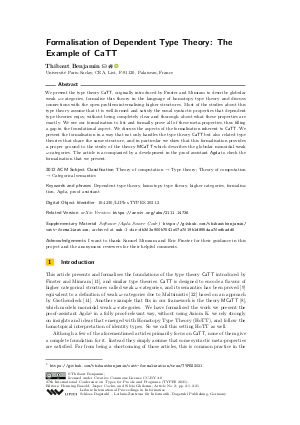LIPIcs.TYPES.2021.2.pdf
- Filesize: 0.83 MB
- 21 pages

 Creative Commons Attribution 4.0 International license
Creative Commons Attribution 4.0 International license







Feedback for Dagstuhl Publishing